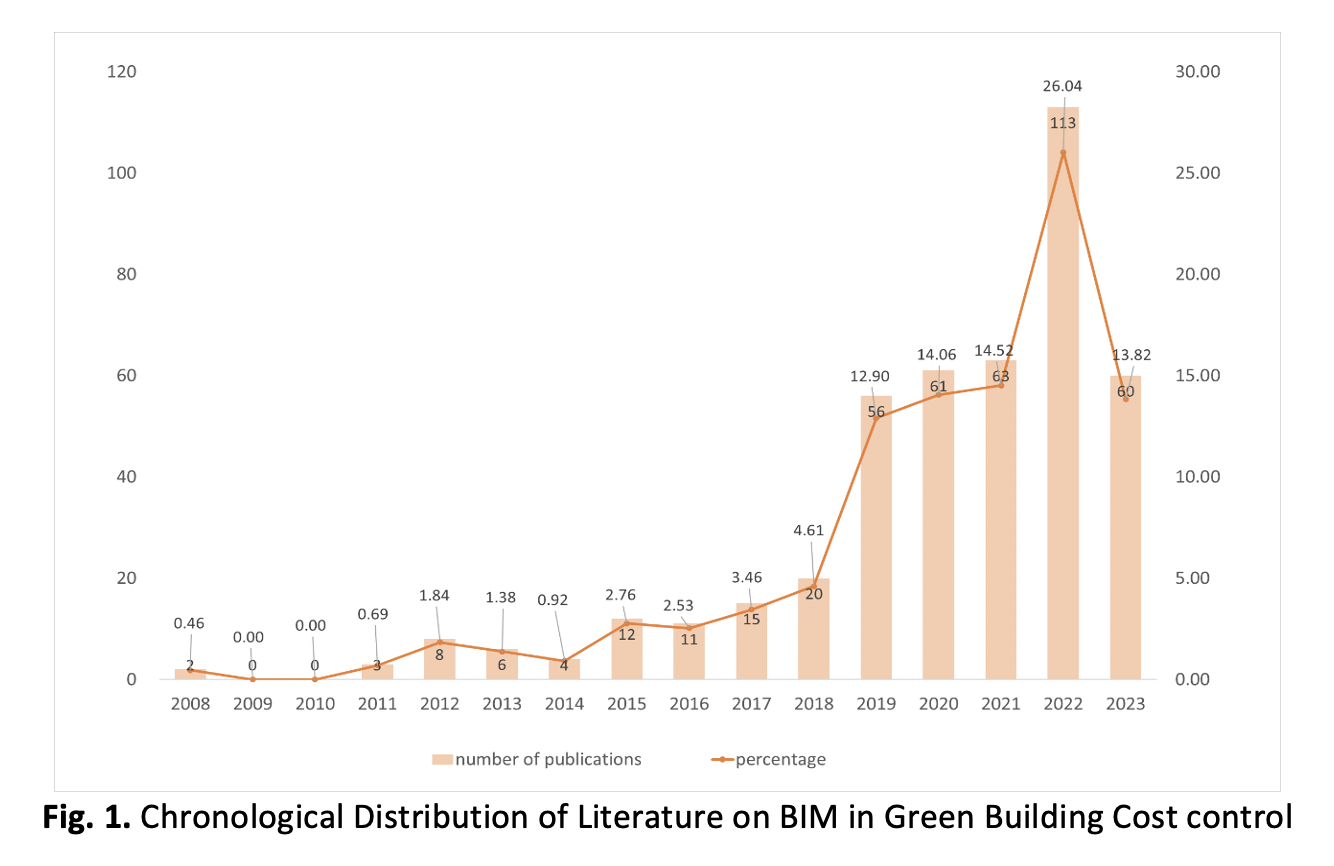The Efficacy of Building Information Model in Cost Control of Green Buildings in Shanghai
DOI:
https://doi.org/10.37934/araset.33.1.471489Keywords:
BIM, Green building, Cost control, Life cycle cost (LCC) theory, ShanghaiAbstract
With the rapid development of modern cities, green buildings have become an important way to reduce energy consumption and environmental impact. The focus of the industry has shifted towards controlling the costs associated with these green buildings. As a solution, Building Information Modelling (BIM), an integrated digital tool, has gained widespread usage in the cost control of green buildings, including in the city of Shanghai. As a centre city of China, Shanghai has both prospects and challenges in the field of green building cost control, it is extremely important to conduct this comprehensive study in Shanghai. Therefore, the primary objective of this study is to delve into the impact of BIM on the cost control of green buildings in Shanghai and unveil its effect during the implementation process of green building projects. To achieve this goal, the author used qualitative research and conducted in-depth interviews with engineers who have used BIM technology in various green building projects. The interviews explored the application of BIM and its effect on controlling costs. The findings of this study reveal that BIM has had a significantly positive impact on the cost control of green buildings in Shanghai. By implementing BIM, the efficiency of cost control has been enhanced throughout the entire life cycle of these environmentally friendly structures. This improvement stems from the ability of BIM to provide accurate and detailed information about the building's design, construction, and operation, enabling better decision-making and resource allocation. The implications of this study are twofold. First, it helps to theoretically understand the impact of BIM on green building cost control, especially in the context of Shanghai. This adds to the existing body of knowledge and furthers research in the field. Secondly, this study also fills the research gap of BIM in the cost control of green building projects in Shanghai.
Downloads





























